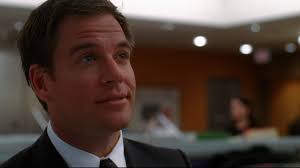
The Unraveling of the Jester: DiNozzo on Painkillers and Out of Control
Tony DiNozzo, NCIS Senior Field Agent, is a meticulously constructed edifice of wit, pop culture references, and a carefully cultivated bravado. His persona is a shield, deflecting genuine emotion and vulnerability, a constant performance for an audience of one (Gibbs) and an entire bullpen. But strip away the layers, dull the sharp edges of his control, and what remains? Imagine DiNozzo, not just recovering from a grueling physical injury – a shattered collarbone, a concussion, or a few fractured ribs – but navigating the world through the chemical haze of powerful painkillers. The result would not merely be a slightly off-kilter agent; it would be the spectacular, often heartbreaking, unraveling of Tony DiNozzo, a man profoundly out of control.
The first casualty of his pharmaceutical haze would be his legendary filter. Tony’s wit, usually rapid-fire and precise, would become a blunted instrument, his jokes either falling flat, veering into genuine offensiveness, or becoming nonsensical ramblings. The carefully curated pop culture references, his verbal comfort blanket, would devolve into jumbled, anachronistic non-sequiturs, leaving McGee blinking in confusion and Ziva's head tilted in bewildered amusement, tinged with concern. He might blurt out an uncharitable truth about a colleague or a personal insecurity he’d usually bury beneath layers of irony. A casual “Rule 11, Probie” might transform into a slurred, emotionally charged rant about Gibbs’s perceived aloofness or a painful childhood memory, leaving the team stunned into silence. His usual charming banter would morph into something sharper, more aggressive, or conversely, pathetically maudlin.
Beyond the verbal chaos, his professional competence would fray at the seams. DiNozzo thrives on instinct, observation, and a certain physical grace honed by years of chasing suspects and navigating dangerous situations. On painkillers, this would be profoundly compromised. Imagine him fumbling with evidence at a crime scene, his movements uncoordinated, his hands clumsy. A crucial detail in a witness interview might slip past him, his attention fragmented, his focus drifting. In the field, the danger would escalate exponentially. His usual quick reflexes would be sluggish, his judgment impaired. A simple pursuit could become a reckless dash into an ambush, his bravado amplified by the drugs, his usual caution overridden. Gibbs’s headslaps, usually a disciplinary measure, would become more about preventing outright disaster, laced with a potent mix of frustration and profound worry.
Perhaps the most poignant aspect of DiNozzo out of control on painkillers would be the stripping away of his emotional defenses. Tony uses humor and flippancy to manage the immense pressure of his job and the deep-seated insecurities that plague him. With those coping mechanisms dulled, the raw nerves would be exposed. He might become uncharacteristically emotional, prone to fits of unbridled anger directed at a frustrating suspect, or equally, unexpected bursts of melancholy. He might reveal long-buried vulnerabilities: his complicated relationship with his father, his fear of being alone, or the lingering pain of past losses, all delivered with an unsettling lack of the usual DiNozzo polish. Tears, a sight rarely seen from the senior agent, might well up without warning, leaving him bewildered by his own transparency, and his team deeply unsettled by this raw, unvarnished glimpse into the man beneath the mask.
Ultimately, DiNozzo on painkillers and out of control would be a terrifying mirror held up to the man he usually presents to the world. It would highlight the sheer effort he expends daily to maintain his facade, to be the charming, confident, capable agent. The chaos he embodies under the influence would serve as a stark reminder of the fragile balance within him, and the protective, often necessary, role his carefully constructed persona plays. It would be a challenging, frustrating, and ultimately empathetic portrayal of a man forced to confront his own fragility when his meticulously crafted world, and the drugs meant to heal him, conspire to dismantle his control.